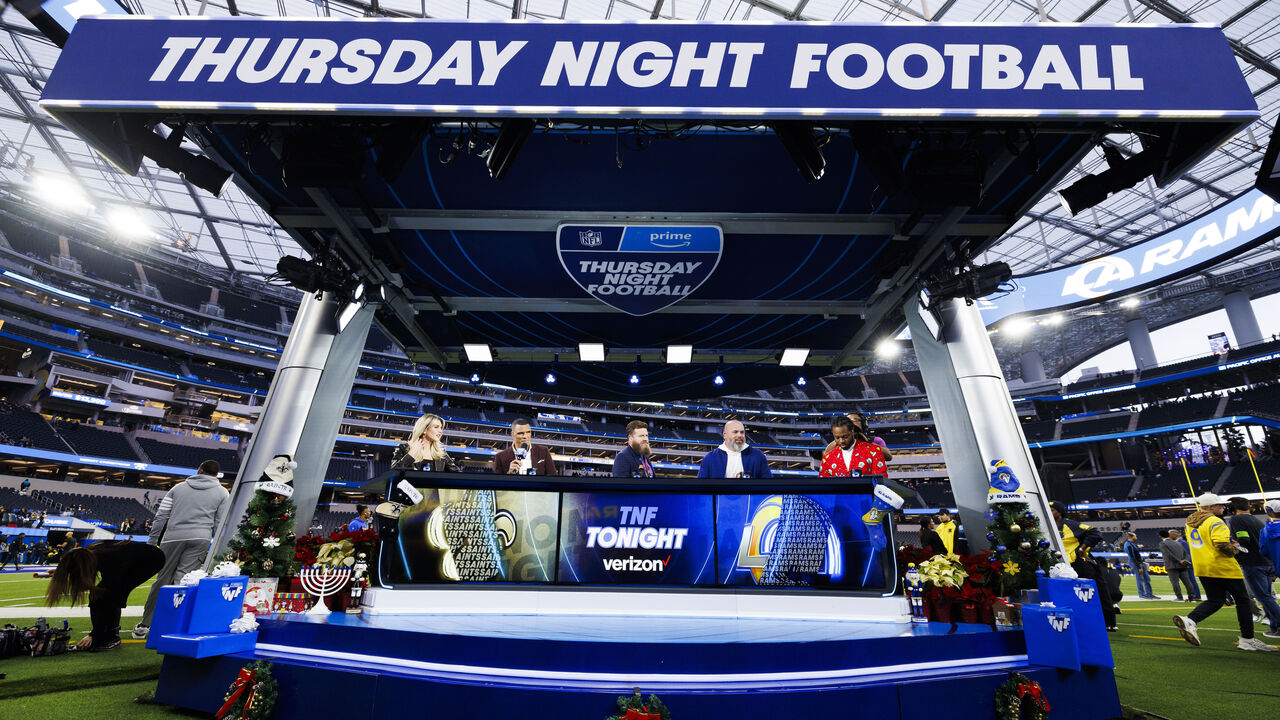No roadblocks yet in NFL's path to world domination
A funny thing about the National Football League is that it exists at the pleasure of the United States government.
Some of the pillars of its business, such as the amateur draft and its many national broadcast deals, are allowed because the government specifically exempted the league from antitrust laws. (It's not unique among professional sports leagues in this regard.)
One of those exemptions, dating to the early 1960s, forbade the NFL from broadcasting games on Friday nights or Saturday afternoons to avoid overshadowing high school and college football. But that rule applies from the second week of September through the second week of December.
It's a loophole the NFL has hit like an off-tackle gap, scheduling one of the biggest games of Week 1, Eagles-Packers, for the first-ever game in Brazil in prime time and on the NBC-owned Peacock streaming service Friday, Sept. 6.
If it's not a technical violation of the law, it's certainly a break with the spirit of the rule.
But the NFL has been breaking with a lot of traditions lately. The international games, once occasionally held in Mexico City, have been expanding at quite a clip, with five regular-season dates to be held this season in London, Munich, and São Paulo. Christmas Day games were scheduled for Wednesday this season - after the league first said it wouldn't consider such awful timing - and sold as a broadcast package to Netflix.
Further, the 16-game schedule became 17 games and seems destined to become 18, making the headlines about player safety and concussions feel like they're from another lifetime. And now the NFL is broadcasting domestically on cable (NFL Network, ESPN) and digital (Peacock, Prime Video, ESPN+, Netflix), as well as on its traditional network partners (CBS, FOX, NBC).

The league is doing all this because it can do whatever it wants. It's such a behemoth, routinely registering almost every one of the top 50 U.S. television programs in a given year, depending on the Olympics and whether anyone cared about the Oscars. People used to make a fuss about the short week of recovery that resulted from a Monday night game, but now the NFL runs a full Thursday slate and is throwing in the odd Friday and Wednesday. And people will watch, because they always do.
But it's worth asking where all of this ends. Are more weekday games next? Four teams - Kansas City, Houston, Baltimore, and Pittsburgh - will play Dec. 21 and then again Dec. 25, two games in five days while nearing the end of a long schedule. It's a brutal ask.
Will the league keep pushing into more foreign markets? The London and Mexico games used to be one-off curiosities. Now the league is going into Brazil. Why the NFL feels the need to build support in the southern hemisphere is unclear. At this point, would anyone be particularly surprised if the NFL ended up hosting games in Qatar or the United Arab Emirates?
While some may roll their eyes at the suggestion that these kinds of long-distance trips are a hardship on players who travel on chartered jets, have a look at flights from Milwaukee to São Paulo. Does that sound like a great way to prepare for a game, even if you do have plenty of legroom? Twelve hours in an airplane is still 12 hours in an airplane.
The NFL's manifest destiny, where it's expanding on both the territorial and scheduling fronts, must have an impact on its employees. Although the league has improved player safety by investing in helmet technology while implementing concussion spotters and a stricter protocol for head injuries, the NFLPA must be gnashing its teeth over players performing in more games with less rest.
A Friday game might not seem like a big deal in isolation, but it's further proof the NFL wants to keep growing. It has to stop somewhere. Doesn't it?
Scott Stinson is a contributing writer for theScore.